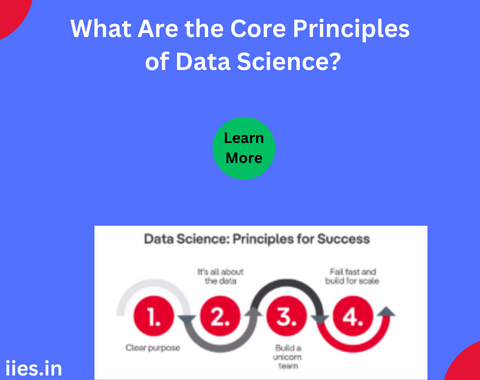1. Data Collection and Acquisition:
Data science begins with the collection of relevant data. This may involve extracting information from databases, web scraping, or utilizing data from sensors and devices. The quality and quantity of the data collected play a crucial role in the success of any data science project.
2. Data Cleaning and Preprocessing:
Raw data is often messy and inconsistent. Data scientists spend a significant amount of time cleaning and preprocessing the data, handling missing values, removing outliers, and transforming variables to make the dataset suitable for analysis.
3. Exploratory Data Analysis (EDA):
EDA is the process of visually and statistically exploring the dataset to gain insights into its structure and characteristics. This step helps identify patterns, trends, and potential relationships between variables, guiding the selection of appropriate analytical methods.
4. Feature Engineering:
Data scientists manipulate and create new features that enhance the predictive power of models. This involves selecting, transforming, and combining variables to extract relevant information and improve the performance of machine learning algorithms.
5. Model Building and Training:
Machine learning models form the heart of many data science projects. These models are trained using historical data to make predictions or classifications on new, unseen data.
6. Model Evaluation and Validation:
To ensure the reliability of models, data scientists rigorously evaluate and validate their performance. This involves testing models on independent datasets, assessing accuracy, precision, recall, and other metrics depending on the nature of the problem.
7. Deployment and Monitoring:
Successful data science projects culminate in the deployment of models into real-world applications. Continuous monitoring and updating are crucial to adapt to changes in the data distribution and maintain the model’s effectiveness over time.
Applications of Data Science:
1. Business and Finance:
In the business world, data science is used for customer segmentation, fraud detection, demand forecasting, and optimizing marketing strategies. Financial institutions leverage data science for risk management, credit scoring, and portfolio optimization.
2. Healthcare:
Data science contributes to personalized medicine, drug discovery, disease prediction, and patient outcome analysis. It aids in optimizing healthcare operations, reducing costs, and improving the quality of patient care.
3. E-commerce:
Retailers utilize data science for recommendation systems, customer retention, inventory management, and pricing optimization. The analysis of customer behavior helps in tailoring marketing strategies for maximum impact.
4. Education:
Data science enhances educational systems through adaptive learning platforms, student performance analysis, and predictive modeling for identifying at-risk students. It helps institutions make data-driven decisions to improve learning outcomes.
5. Transportation and Logistics:
Optimization of supply chain routes, predictive maintenance for vehicles, and traffic flow analysis are key applications of data science in the transportation and logistics industry. It aids in minimizing costs and improving overall efficiency.
Impact and Future Trends:
The impact of data science on various industries is undeniable. Businesses that embrace data-driven decision-making gain a competitive edge by adapting to changing market conditions, understanding customer behavior, and optimizing operational processes. As technology advances, several trends are shaping the future of data science:
1. Artificial Intelligence (AI) Integration:
The integration of AI techniques, such as natural language processing and computer vision, enhances the capabilities of data science models. This allows for more sophisticated analysis and interpretation of diverse data types.
2. Explainable AI:
As machine learning models become more complex, there is a growing need for explainability. Explainable AI aims to make the decision-making process of models transparent, allowing users to understand and trust the results they produce.
3. Edge Computing:
Edge computing brings data processing closer to the source, reducing latency and enabling real-time analytics, a crucial aspect in applications like autonomous vehicles and smart cities.
4. Ethical Considerations:
As data science becomes more pervasive, ethical considerations surrounding data privacy, bias in algorithms, and responsible AI usage gain prominence. Striking a balance between innovation and ethical principles is crucial for the responsible development of data science.

